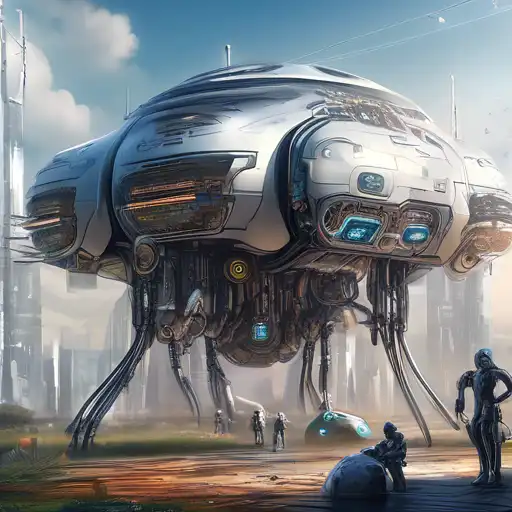Introduction to Artificial Intelligence's Evolution
Artificial Intelligence (AI) has transitioned from a futuristic concept to a cornerstone of modern technology. Today, AI's trajectory is not just about innovation but reshaping how we live, work, and interact. This article delves into the current state of AI, exploring its potential to redefine industries and everyday life.
The Current Landscape of AI
The realm of AI is vast, encompassing machine learning, natural language processing, robotics, and more. Companies and researchers are pushing boundaries, creating systems that learn, adapt, and potentially outthink human intelligence. From healthcare diagnostics to autonomous vehicles, AI's applications are limitless.
Key Innovations Shaping AI's Future
- Deep Learning: Revolutionizing how machines understand complex data.
- Quantum Computing: Offering unprecedented computational power to solve intricate problems.
- AI Ethics: Ensuring responsible development and deployment of AI technologies.
AI in Everyday Life
AI's integration into daily life is undeniable. Smart assistants, personalized recommendations, and automated customer service are just the tip of the iceberg. The future promises even more seamless integration, making AI an invisible yet indispensable part of our routines.
Challenges and Opportunities
Despite its potential, AI faces challenges, including ethical concerns, job displacement, and data privacy issues. Addressing these challenges head-on presents opportunities for innovation and the development of robust frameworks that ensure AI benefits all of humanity.
Preparing for an AI-Driven Future
As AI continues to evolve, staying informed and adaptable is crucial. Embracing lifelong learning and fostering a culture of innovation will prepare individuals and societies for the changes ahead. The future of AI is not just about technology but how we choose to integrate it into the fabric of society.
Exploring AI's current trajectory offers a glimpse into a future where technology and humanity converge. By understanding today's advancements, we can anticipate tomorrow's possibilities, ensuring a future where AI enhances human potential without compromising our values.
